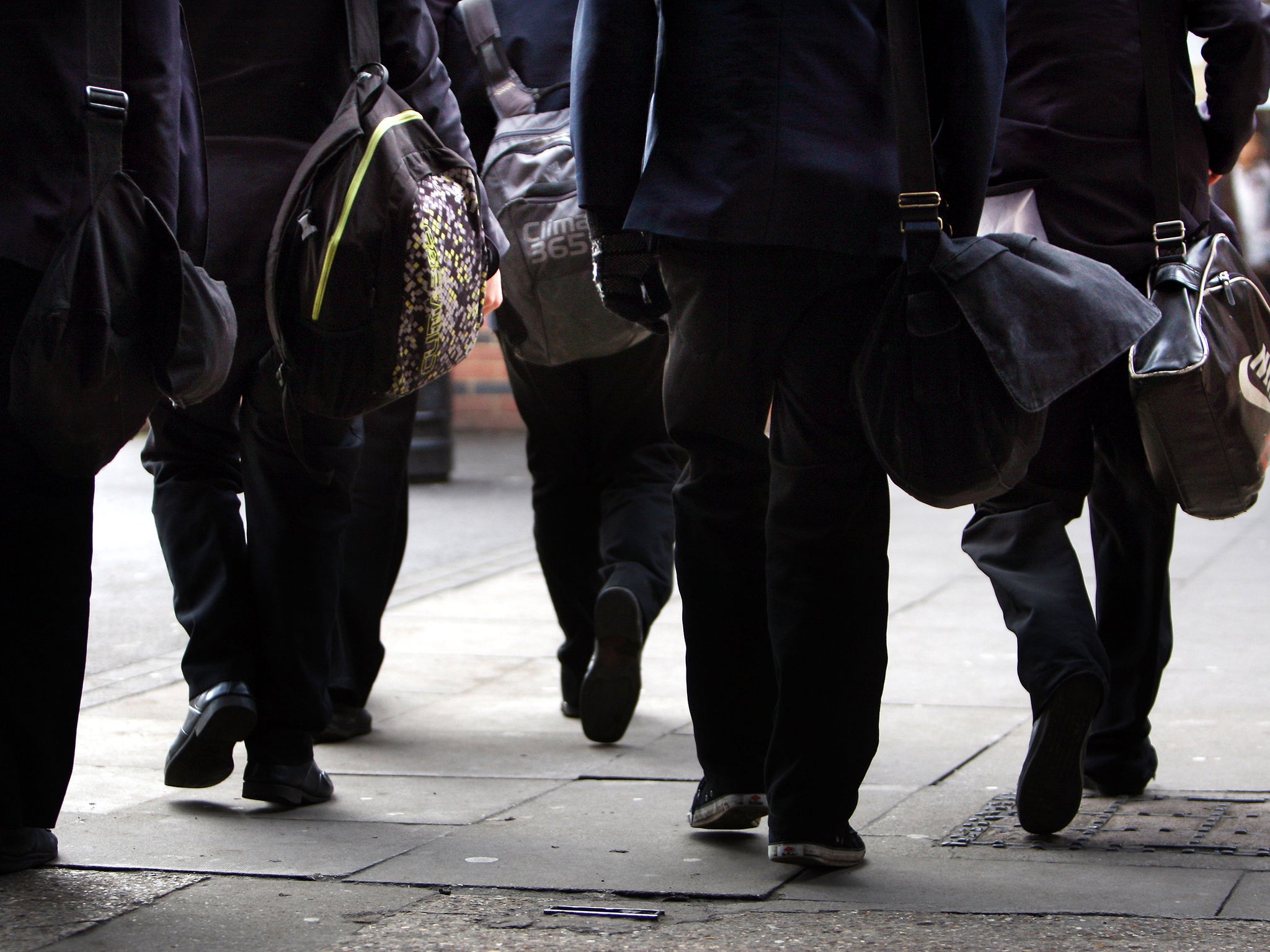Don’t expect schools to stop knife crime when they cannot even afford to teach
Analysis: Schools have been partly blamed for surge in horrifying street violence – but how much is it their fault, asks Eleanor Busby


At the moment, it seems as though not a day goes past without a murderous knife attack – usually with both perpetrators and victims heartbreakingly young.
The relentless tide of violence, and the grief-stricken families left in its wake, has prompted a great deal of political finger-pointing, and schools have not escaped.
It is far from the first time teachers have been called upon to heal the ills of society (or blamed for them). And it won’t be the last.
The charge levelled by Sadiq Khan and police chiefs that a “broken” exclusion system is linked to the bloody upsurge in attacks has sparked an angry backlash from education professionals.
It is true that the number of permanent exclusions has risen sharply at the same time that the number of children committing knife offences has gone up.
There is certainly correlation between the two; but as any science teacher worth their salt will tell you, that does not mean causation. The picture is complex. Rising child poverty and more complicated needs among children, at a time when public services have been cut back beyond the bone, are unlikely to have helped.
Ofsted boss Amanda Spielman has now waded into the debate, cautioning against a “harmful narrative” that exclusions lead to children joining gangs and using knives.
She says it is likely that exclusions and street violence are two symptoms of the same underlying problems, “exacerbated by cuts” to local authority children’s services.
It is easy to jump to the conclusion that schools are letting pupils down – whether that be on knife crime, child obesity or the rise in mental health problems among the young.
But we should not forget that schools are increasingly having to grapple with deep-set societal issues while struggling through each day with barely enough resources to do their core job.
Of course, it is vital educational establishments of all stripes do everything they can to safeguard children, and they should not be rushing to move on a challenging pupil until they have exhausted all the alternatives.
Some London schools and colleges are even introducing self-defence and first aid classes. While it is a grim sign of the times that this should be necessary, their concern for their pupils should be commended. However, by the time a knife is on the street, it is too late. Early intervention programmes, and allowing teachers more time to spend with individual children, are the kind of thing that prevents situations escalating in the first place.
At the moment, headteachers across the country are having to cut staff and lesson times, and being forced to ask parents to pay for vital basics like toilet roll, pens and paper from their own pockets.
No matter how much they may want to help – and surely there is no head anywhere who doesn’t – it will be impossible for them to do so without giving them the resources they need. And no amount of finger-pointing will change that.
Subscribe to Independent Premium to bookmark this article
Want to bookmark your favourite articles and stories to read or reference later? Start your Independent Premium subscription today.
Join our commenting forum
Join thought-provoking conversations, follow other Independent readers and see their replies
Comments